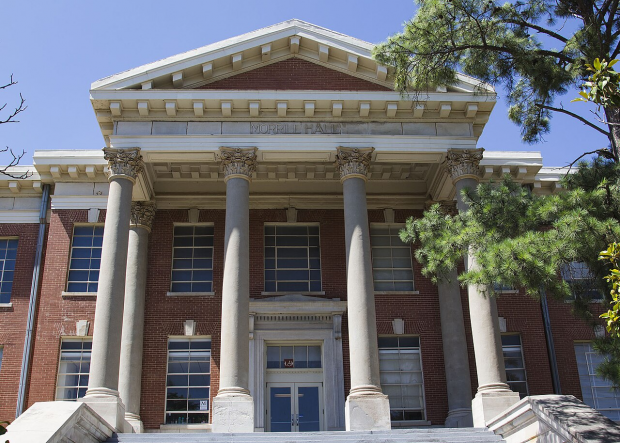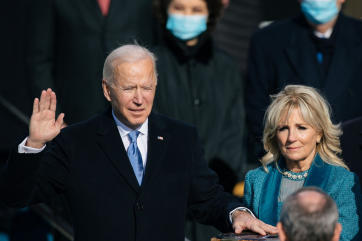Oklahoma State University Settles with Speech First, Disbands Bias Response Team and Rewrites Harassment Policy
By Joy LiwanagIn the realm of higher education, the intersection of free speech and campus policies often sparks contentious debates. Oklahoma State University (OSU) found itself at the center of such a debate when it reached a settlement with Speech First, a conservative free expression advocacy group. Let's delve into the implications of this settlement and what it means for the landscape of free speech on college campuses.

(Photo : WIKIMEDIA COMMONS / Jacobredway)
A Victory for Free Expression Advocates
The settlement between OSU and Speech First marks a significant victory for proponents of free speech on college campuses. The crux of the issue lies in OSU's Bias Incidents Response Team and its harassment policy, which Speech First argued infringed upon students' First Amendment rights. By disbanding the Bias Incidents Response Team and committing to rewrite its harassment policy, OSU has taken a step towards fostering a more open and inclusive environment for free expression.
Speech First's executive director, Cherise Trump, hailed the settlement as a major win for OSU students and reiterated the organization's commitment to safeguarding free speech rights nationwide. This victory adds to Speech First's track record of challenging university bias reporting systems, underscoring the organization's dedication to upholding constitutional principles in higher education.
READ MORE: Oklahoma Governor Signs Order Banning Diversity Programs At Public Colleges And Universities
Misconceptions Surrounding Bias Response Teams
Critics often portray bias response teams as mechanisms of censorship, dubbing them "thought police squadrons" aimed at stifling free speech. However, advocates contend that these teams serve a vital role in promoting awareness of bias and ensuring campus environments remain inclusive and respectful.
OSU's Bias Incidents Response Team came under scrutiny for its alleged chilling effect on open discourse. Speech First argued that the team's bureaucratic processes and vague definitions of "bias incident" risked stifling free expression. This sentiment reflects a broader concern among free speech advocates regarding the balance between fostering an inclusive environment and safeguarding robust debate on campus.
Impact on Student Expression
The settlement's implications extend beyond mere policy changes; they resonate deeply with students who felt constrained by OSU's previous regulations. Speech First's lawsuit highlighted the experiences of students who feared expressing their viewpoints due to the university's policies.
One such student, referred to as "Student B" in the lawsuit, exemplifies the challenges faced by those with minority perspectives on campus. Despite enrolling at OSU to engage in lively debate, Student B felt stifled by the fear of being reported for engaging in a "bias incident." This case underscores the importance of fostering a campus climate where all voices, regardless of their popularity, feel empowered to contribute to intellectual discourse.
Looking Ahead: Implications for Higher Education
The settlement between OSU and Speech First sets a precedent for how universities navigate the complex terrain of free speech on campus. It underscores the need for institutions to strike a balance between promoting inclusivity and protecting the fundamental right to free expression.
As universities across the nation grapple with similar challenges, the OSU case serves as a reminder of the importance of revisiting and refining campus policies to align with constitutional principles. By engaging in constructive dialogue and fostering environments where diverse viewpoints are welcomed, universities can uphold their role as incubators of critical thinking and civil discourse.
The settlement between OSU and Speech First represents a pivotal moment in the ongoing dialogue surrounding free speech in higher education. By addressing concerns raised by advocacy groups and students alike, universities can strive to create environments where free expression thrives while maintaining a commitment to inclusivity and respect.
RELATED ARTICLE: Pennsylvania And Oklahoma Governors Propose Consolidation Of HEIs To Navigate Enrollment And Financial Challenges








